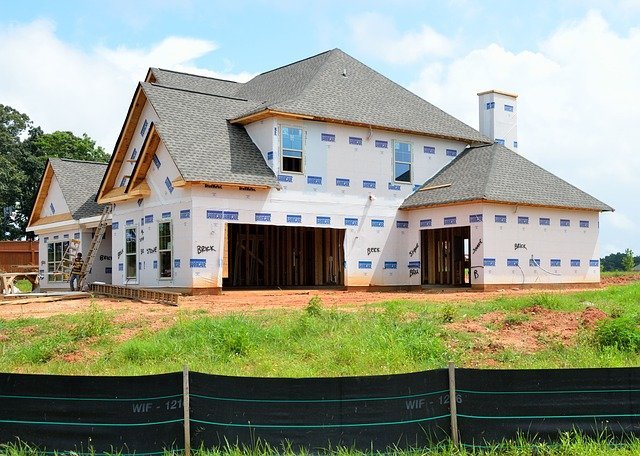Home Mortgage
Get Knowledgable On Home Mortgages With These Tips

Mortgages are a central aspect to home ownership, though not enough people have the knowledge to get the best deal. The following paragraphs are here to help you in finding your best possible mortgage. Keep reading to learn all you need to know.
Avoid accepting the most amount for which you qualify. Consider your life and what you are able to afford.
Don’t buy the most expensive house you are approved for. The amount of loan you qualify on is based solely on your gross salary. Consider your life, how your money is spent, and what you can afford and stay comfortable.
Before you try to get a loan, have a look at your credit report to make sure everything is okay. The past year has seen a tightening of restrictions on lending, so improve your credit rating so that you have the best chance to get qualified for the best loan products.
Many homeowners may give up on their problems with a lender; if you are in financial trouble try to renegotiate it. Be sure to call the mortgage holder.
When you’re in the process of getting a home loan, pay off your debts and avoid new ones. When your consumer debt is low, you will qualify for a higher mortgage loan. If you have high debt, your loan application may be denied. Carrying a lot of debt will also result in a higher interest rate.
Get your documents in order. Most lenders will require you to produce these documents at the same documents. They include bank statements, W2s, pay stubs as well as income tax returns. The mortgage process will run more quickly and more smoothly when your documents ready.
Make sure your credit rating is the best it can be before you are planning to apply for a mortgage. Lenders examine your credit history to ensure themselves that you are a good risk. If you’ve got bad credit, do all you can to get it cleaned up before applying for a mortgage.
Have your financial information with you when you visit a lender for the first time. Not having all the paperwork you need will waste your time as well as that of the lender. The bank needs to see every one of these documents. Make sure you bring them when you go to your appointment.
Don’t lose hope if you have a mortgage. Every lender has their own criteria you need to satisfy to qualify. This is why it’s always a good idea to apply with a few lenders in the first place.
Do not let a denial keep you from getting a mortgage. One lender’s denial does not represent them all. Keep shopping around and explore all available options. You might need someone to co-sign the mortgage that you need.
New rules under HARP could let you apply for a brand new mortgage, no matter if you owe more than your current home is worth or not. Lots of homeowners failed at their attempts to refinance underwater loans in the past; this new program gives them an opportunity to change that. Check to see if it could improve your situation with lower payments and credit benefits.
The interest rate will end up spending on your payments. Know what you’ll be spending and how increases or decreases affect your monthly payment. You might end up spending more than you want to if you are not careful with interest rates.
Your credit card balances should be less than half of your overall credit limit. If you can, try to get those balances at 30 percent or less.
Never stop communicating with your lender, even if your financial situation has taken a turn for the worse. You might be inclined to throw in the towel when in dire straits, but it is possible to have a loan renegotiated. Stop putting it off, and call your lender to find a solution.
Adjustable rate mortgages or ARMs don’t expire when their term is up. The rate is adjusted to the rate at the application you gave. This means the mortgage could result in a much higher interest rate later on.
Learn ways to avoid being taken in by less-than-honest home mortgage lender. Avoid the lenders who talk you into a deal. Never sign loan documents with unusually high interest rate is way too high. Avoid lenders that say there is no problem if you have bad credit. Don’t go with lenders that say you can lie on any applications.
You will more than likely have to cover a down payment on your mortgage. Certain lenders give approvals without a down payment, but that is increasingly not the case. Consider your finances carefully and find out what kind of down payment you will need to provide.
Know what all your fees related to a mortgage. There are going to be itemized closing costs, as well as commissions and miscellaneous charges you need to be aware of. You can negotiate these with your lender or seller.
Lower your number of open credit accounts prior to seeking a house. Having too many credit cards can make you look financially irresponsible.
Be certain you have impeccable credit before you decide to apply for a mortgage. Lenders closely analyze credit history to minimize risk. If your credit is bad, do everything possible to fix it to give your loan the best chance to be approved.
Have a good amount in savings account prior to applying for a home loan. You are going to need money to cover the down payment, closing costs, fees for applications and appraisals. The more you have for the down payment, usually you will get more favorable loan terms.
To buy and stay in a home, you need a great mortgage. Just reading these tips probably makes you one of the more knowledgeable people. Ultimately, you will be much better off, and you will have a home of your own.
If you are denied for a mortgage, do not lose hope. Instead, go seek out the services of another lender. Different lenders have their own standards for giving loan approvals. It is for this reason, that it is beneficial to you to apply with different lenders.


